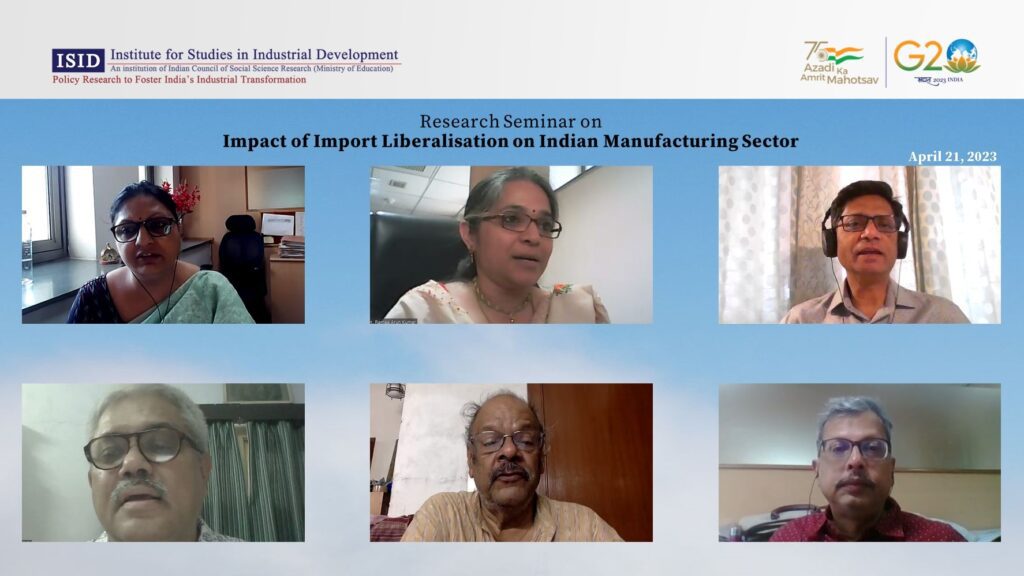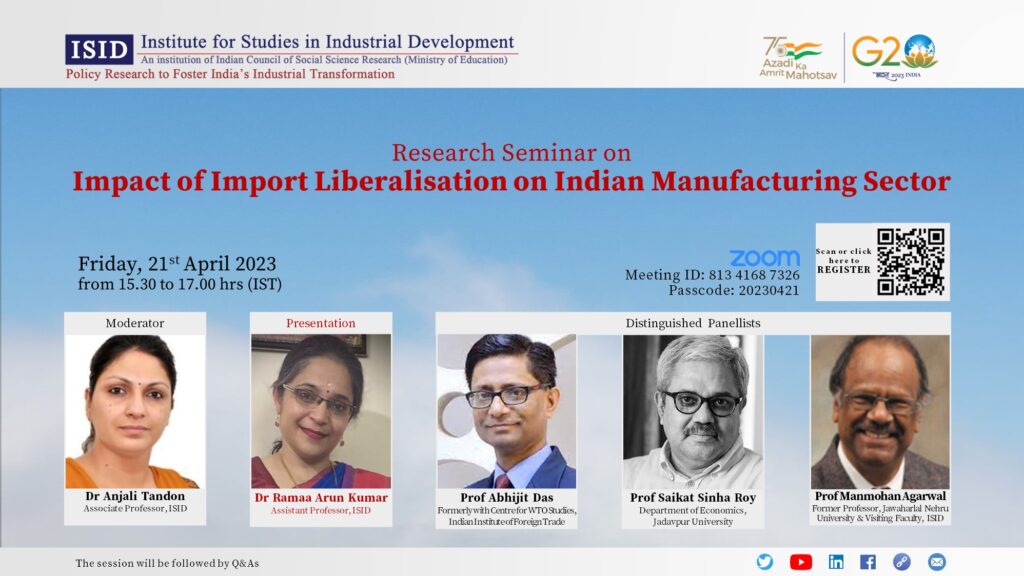
ISID organised a webinar on “Impact of Liberalisation on Indian Manufacturing Sector” on April 21, 2023. Dr Ramaa Arun Kumar, Assistant Professor, ISID, made the presentation. The presentation was discussed by an expert panel of senior economists including Prof Abhijit Das, formerly with Centre for WTO Studies, Indian Institute of Foreign Trade, New Delhi; Prof Saikat Sinha Roy, Professor, Department of Economics, Jadavpur University; and Prof Manmohan Agarwal, Visiting Faculty, ISID. The webinar was moderated by Dr Anjali Tandon, Associate Professor, ISID.

Click here to REGISTER | INVITE
Meeting ID: 813 4168 7326
Passcode: 20230421
Abstract: India liberalised its trade in 1991 as a part of the major economic reforms that took place as a result of the twin deficits in the late 1980s. This was the beginning of a structural change that could have taken India away from major obstacles to a higher level of economic development. Trade liberalisation, in particular, not only deteriorated the trade deficit situation further, the lack of foresight in opening up sectors was also detrimental for the industrialisation process in India. In the present context, the Covid-19 pandemic has adversely affected supply chains all over the world. Given that India’s dependence on China in many sectors has grown manifolds in many sectors as pharmaceuticals emanated the need for introspecting this phenomenon. The emphasis on Aatmanirbharta (self-reliance) has changed the perspective to target our trade as well as industrial policy to come out of the excessive reliance of India’s import dependence and build up domestic manufacturing base.
In this context, the study analyses the impact of import liberalisation on the industrialisation process, with emphasis on employment at the industry level. As mentioned above, import liberalisation may have variable impact on different types of industries. Therefore, to find differential impact, we have divided the 4-digit industries into used-based classification, viz., primary, intermediate, consumer and capital goods. Using panel data estimations from 2008-09 to 2018-19, we find that the effect of import liberalisation had a negative impact on the industrialisation process of the consumer goods industries which bore the major share of import surge in the era of unilateral reduction of tariffs and non-tariff barriers by India without commensurate industrial policies to protect the vulnerabilities of the growing consumer goods industries. A right mix of industrial and trade policy would speed up the industrialisation process in India and have long term impact on employment and output.

